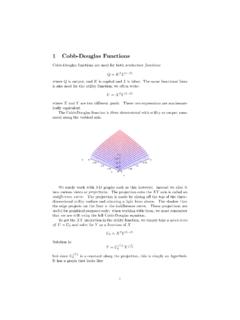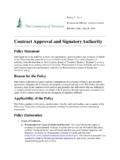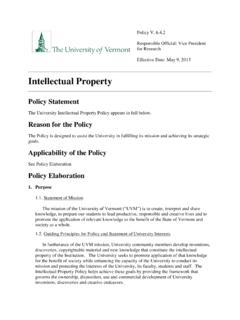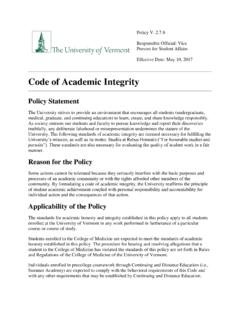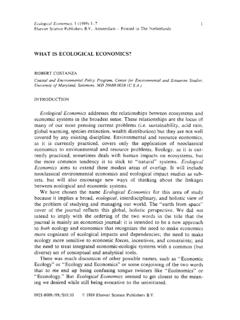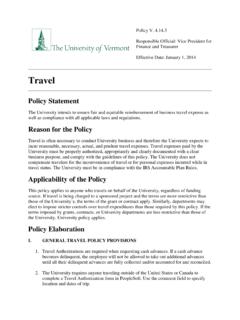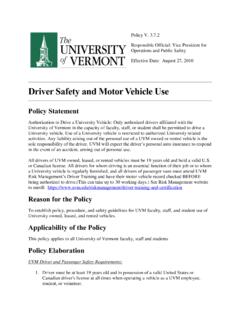Transcription of Facilitating Reflection: A Manual for Leaders and Educators
1 Facilitating Reflection: A Manual for Leaders and EducatorsFacilitating ReflectionA Manual for Leaders and Educators Written and Compiled byJulie Reed & Christopher ~dewey/reflection_ (1 of 3) [5/13/03 9:47:18 AM] Facilitating Reflection: A Manual for Leaders and Educators > Table of Contents1. Understanding Reflection2. Facilitating Reflection m Attitudem Communicationm Group Dynamicsm Trouble-Shooting3. Getting Started4. The Reflection Circle5. Activities m Reflection Startersm Role Playsm Quotesm Group Exercises6. Additional Forms of Reflection7. AcknowledgementsAbout Reflection"Reflection" is a vital component of service-learning. This Manual was designed for Educators and Leaders of service groups who have an interest and a commitment to provide reflection opportunities for students and community partners alike.
2 College professors, K-12 teachers, community organization Leaders , and Leaders of service organizations have all found, " Facilitating Reflection: A Manual for Leaders and Educators ," a useful supplement to their Manual was written during the summer of 1995. The primary author, Julie Reed, was interning at the Georgetown University Volunteer and Public Service Center at the time. I had asked her to pull together a compendium of reflection activities that would be useful for Educators and Leaders of service groups. None of the ideas represented in this Manual are original. We borrowed examples from a variety of sources, which you will find in the "Acknowledgements" section at the end of the thanks go out to Sharon Morgenthaler, and the Georgetown University Office of Volunteer and Public Service, for their permission to finally post this Manual on the Internet.
3 Any comments about the Manual should be sent to: Koliba, Assistant ProfessorJohn Dewey Project on Progressive EducationA Student's Thoughts on Facilitating ~dewey/reflection_ (2 of 3) [5/13/03 9:47:18 AM] Facilitating Reflection: A Manual for Leaders and EducatorsAs a student leader, a future educator and a member of my community interested in community service and service learning, I found this Manual to be a helpful guide to understanding and implementing reflection. Reflection is possibly the most important part of service and definitely essential to any type of Service-Learning. The information here helped me think about what role I want reflection to play in my life but also it gave me the tools to integrate meaningful reflection into the work I do with others.
4 This tool of reflection is like a gift that I am now able to present to all people I work with. I have learned the value of it and how to apply it. Reflection is a treasure that I now possess and will value for time to Sierra Melcher, 2000-2001 Director of University of Vermont Citizen Awareness and Training for Students (CATS)> Back to the John Dewey Project on Progressive Education> Back to the University of Vermont - counter from Approvedabout bobbyabout web ~dewey/reflection_ (3 of 3) [5/13/03 9:47:18 AM]Chapter 1: Understanding Reflection - Facilitating Reflection: A Manual for Higher Education> Return to Table of ContentsUnderstanding ReflectionWhat is reflection?Most people who are involved in community service and service learning programs are familiar with the term "reflection.
5 " In fact, we are all familiar with Every time we look in the mirror. The term "reflection" is derived from the Latin term reflectere -- meaning "to bend back." A mirror does precisely this, bend back the light, making visible what is apparent to others, but a mystery to us -- namely, what our faces look service learning, we look to develop processes that allow the people doing service to bend the metaphorical light of their experiences back onto their minds -- to make careful considerations about what their experience were all about: what did they see, who did they meet, why is there a need for such services in the first place, etc. The act of reflection, therefore, becomes crucial to their education. It serves as the bridge between experiences and is more than "touchy-feely.
6 "Many students, staff and faculty in university and college settings think of reflection only in terms of"touchy-feely" group discussions. Consequently, they resist opportunities to reflect on the nature of their service work. This, aversion stems from what appears to be a barrier to talking about one's feelings, thoughts, and emotions. However, reflection need not be limited to the release of emotional energy, the sharing of feelings, or attempts to "feel good" about the service performed. Rather, reflection is decidedly educational. It is simply an opportunity through which one can learn from experience. Reflection can take numerous forms, and touch on an endless variety of issues. It ~dewey/reflection_ (1 of 5) [5/13/03 9:47:37 AM]Chapter 1: Understanding Reflection - Facilitating Reflection: A Manual for Higher Educationfurthers learning and inspires, provocative thought and action.
7 Most of all, it can benefit the individual and the learn from experience?Most of what we know about the world and our place in it is derived from learning through our experiences. Certainly we learn a great deal from formal education -- from lectures and books. But are we merely memorizing and absorbing the facts and figures, or are we experiencing them? Do we not engage in an internal dialogue with the subject matter and, as one student claims, "experience a book"? Aren't we, in fact, reflecting on the subject matter? Answering "yes" to these questions allows us to recognize that we are, learning all the time. When related to service, the opportunity to reflecton experience is crucial. As David Sawyer of Berea College explained, "Service action does not automatically become service attitude.
8 The depth of reflection determines the, quality of the attitude, and the quality of the action." This reflection module encourages us not to take these learning opportunities for is it that we take for granted?Questioning what we, take for granted involves more than thinking about how privileged we might be compared to others in a diverse community. We need to look at the mundane world around us. Donald Schon, in his widely read book entitled, The Reflective Practitioner: How Professionals Think in Action (1983), calls for professionals to better understand their actions by thinking about their actions. This is hardly news, since we do it all the time. What is different, and out of the ordinary, is getting into the habit of thinking about our thinking.
9 Schon suggests several properties related to thinking:1. There are actions, recognitions, and judgements, which we know how to carry out spontaneously; we do not have to think about them prior to or during their We are often unaware of having to learn to do these things; we simply find ourselves doing In some cases, we were once aware of the understandings which were subsequently internalized in our feeling for the stuff of action. In other cases, we may never have been aware of them. In both cases, however, we are usually unable to describe the knowing which our action reveals.(Schon 1984: 54) ~dewey/reflection_ (2 of 5) [5/13/03 9:47:37 AM]Chapter 1: Understanding Reflection - Facilitating Reflection: A Manual for Higher EducationSchon argues that "as practice becomes more repetitive and practitioner may miss important opportunities to think about what he is [H]e learns, as often happens, to be selectively inattentive to phenomena that do not; fit the, categories of his, knowing-in-action, then he may offer from boredom or 'burn-out' and afflict [the people around him] with the consequences of his narrowness and rigidity.
10 " (Schon 1984:61)Why should I be attentive to my thinking?Do you want your service to be a part of your education? Do you want to serve well? Do you want the organization or club you work with to be effective? Do you want your work to mean something? Do you want to learn, improve, and grow? If you answered "yes" to any of these questions, you have provided yourself with good reasons to make reflecting into a can I be more, conscious of "doing no harm."Studies have been done about why college students do community or public service work. Most often students cite altruism, "the selfless concern for the welfare of others," as the reason. They feel that the work they do promotes the welfare of those they are serving, be they newly immigrated children needing to learn English, homeless people needing meals, or a campus needing educational programs about diverse cultures.
